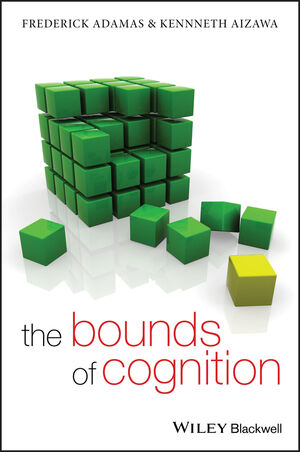The Bounds of CognitionISBN: 978-1-4443-3270-4
Paperback
224 pages
February 2010
 |
||||||
“The Bounds of Cognition is the most thorough-going, forceful, and compelling critique of EMH so far.” ( Erkenntnis, September 2009)
"[This book] is without question a worthy and timely challenge to extended cognition, as well as to areas in related enterprises such as embodied cognition, situated cognition, dynamical systems theory and artificial life.... I recommend the book highly to anyone interested in these issues." (Phenomenology and the Cognitive Sciences, June 2009)
"This is a well written, well argued book. Written by philosophers mainly for philosophers.... It makes a serious contribution to the extended cognition debate that anyone with a serious interest in the issue needs to study." (Journal of Consciousness Studies, January 2009)
"Advocates of EMT must undoubtedly examine the arguments and
criticisms that Adams and Aizawa offer in careful detail, because
The Bounds of Cognition is the most forceful and most
convincing criticism of their position so far."
(Metapsychology, October 2008)
“The [authors] wrote this book as a reasoned challenge … .[It] offers an excellent overview of the promise, limits, and problems of bounded cognition. Recommended.” (Choice)
"Adams and Aizawa have written a book that is going to leave more than a few researchers in the burgeoning field of embodied cognition scratching their heads and wondering how they could have said those things. In a detailed study, Adams and Aizawa question the very foundations of embodied cognition while on the way elaborating a series of challenges that those who wish to continue in the pursuit of embodied cognition must first address."
-Lawrence A. Shapiro, University of Wisconsin
"Adams and Aizawa provide a timely and important critique of an
emerging set of views and arguments often referred to as the
‘extended mind.’ Anyone interested in the current state
of arguments about the extended mind and the future direction of
cognitive science will want to read this book. I look forward to
responding to the arguments."
-Richard Menary, The University of Wollongong, Australia



